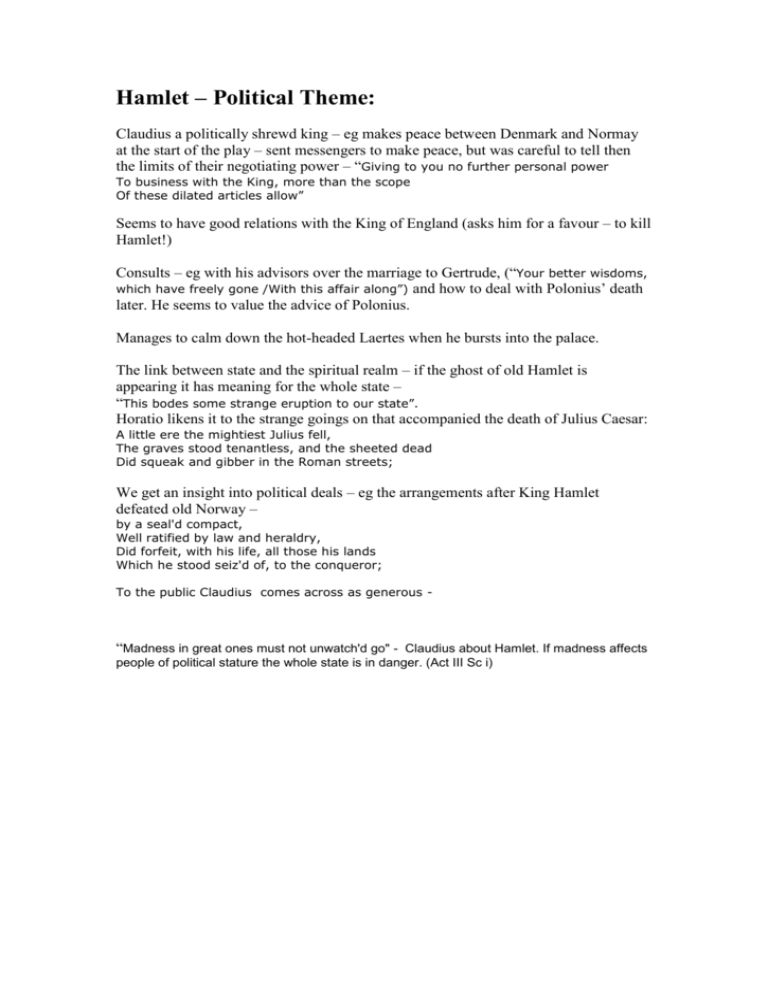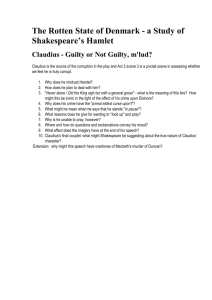Hamlet – Political Theme:
advertisement

Hamlet – Political Theme: Claudius a politically shrewd king – eg makes peace between Denmark and Normay at the start of the play – sent messengers to make peace, but was careful to tell then the limits of their negotiating power – “Giving to you no further personal power To business with the King, more than the scope Of these dilated articles allow” Seems to have good relations with the King of England (asks him for a favour – to kill Hamlet!) Consults – eg with his advisors over the marriage to Gertrude, (“Your better wisdoms, which have freely gone /With this affair along”) and how to deal with Polonius’ death later. He seems to value the advice of Polonius. Manages to calm down the hot-headed Laertes when he bursts into the palace. The link between state and the spiritual realm – if the ghost of old Hamlet is appearing it has meaning for the whole state – “This bodes some strange eruption to our state”. Horatio likens it to the strange goings on that accompanied the death of Julius Caesar: A little ere the mightiest Julius fell, The graves stood tenantless, and the sheeted dead Did squeak and gibber in the Roman streets; We get an insight into political deals – eg the arrangements after King Hamlet defeated old Norway – by a seal'd compact, Well ratified by law and heraldry, Did forfeit, with his life, all those his lands Which he stood seiz'd of, to the conqueror; To the public Claudius comes across as generous - “Madness in great ones must not unwatch'd go" - Claudius about Hamlet. If madness affects people of political stature the whole state is in danger. (Act III Sc i)











